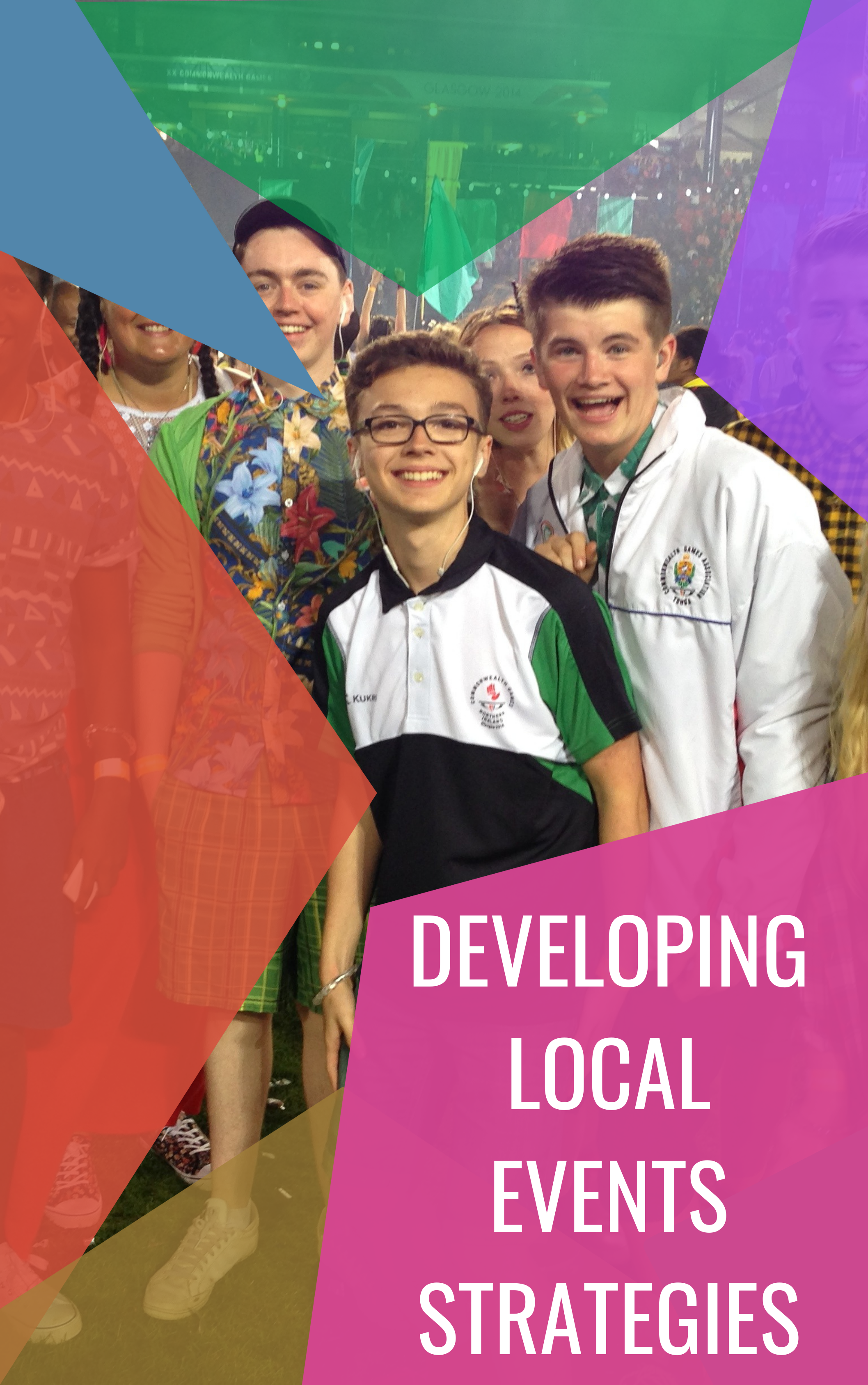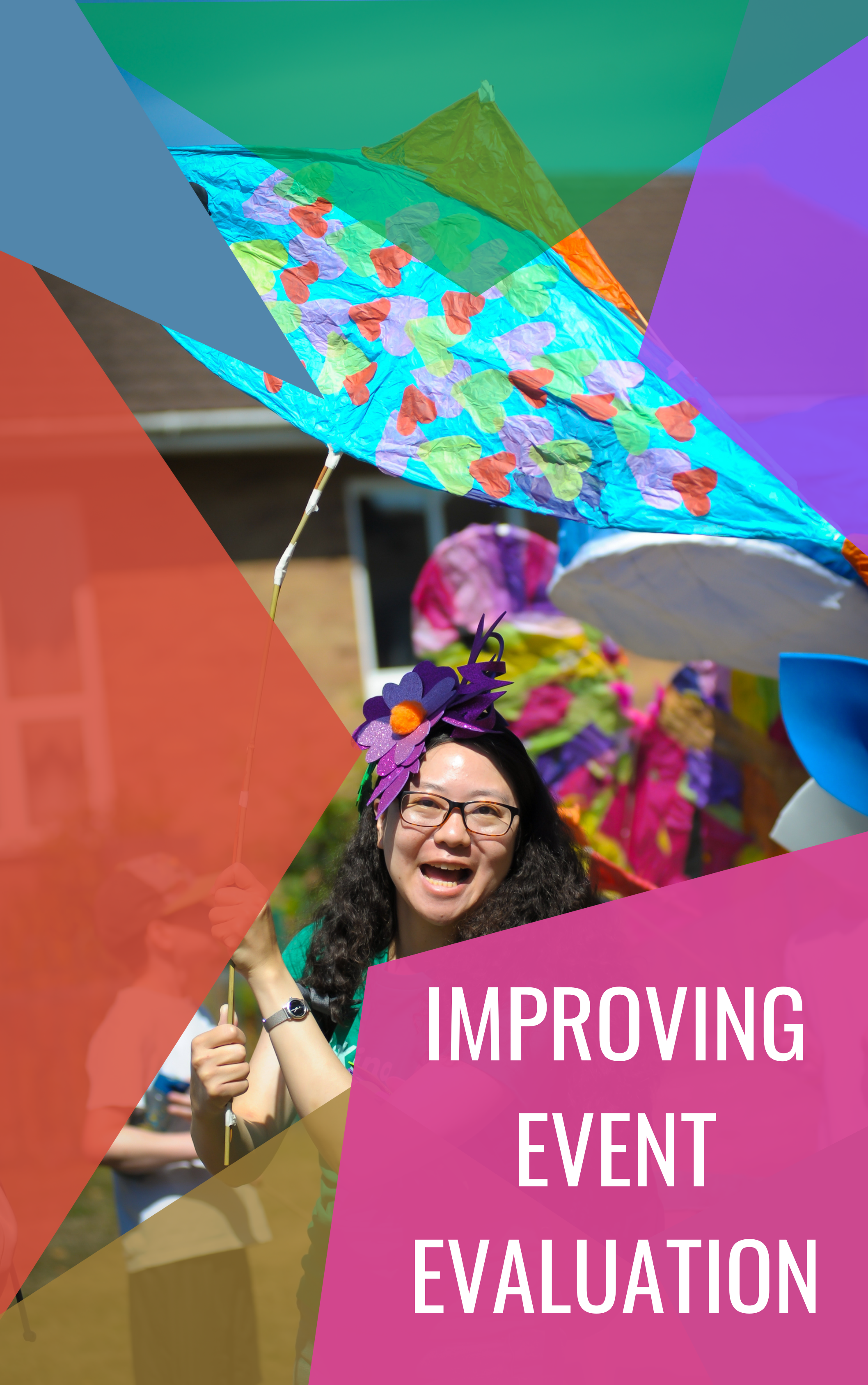
Creating Long-term Event Legacies

While events have the potential to generate lasting social and economic impact, this isn’t automatic. It depends on host cities and organisers having a shared vision for long-term outcomes—and the commitment, planning, and resources to see it through. As the social legacy funder of the London 2012 Games, Spirit of 2012 has championed the value of events, while also acting as a critical friend to the sector.
Over more than a past decade, we’ve funded research, supported evaluation, and worked alongside organisers to ask the difficult questions: What legacy are you aiming for? Who benefits—and who’s left out? What happens when the spotlight fades? Our goal is to help events not only reach their potential in the moment, but to leave a legacy that lasts.
These resources help you to get started with our thinking on how best to make this happen:
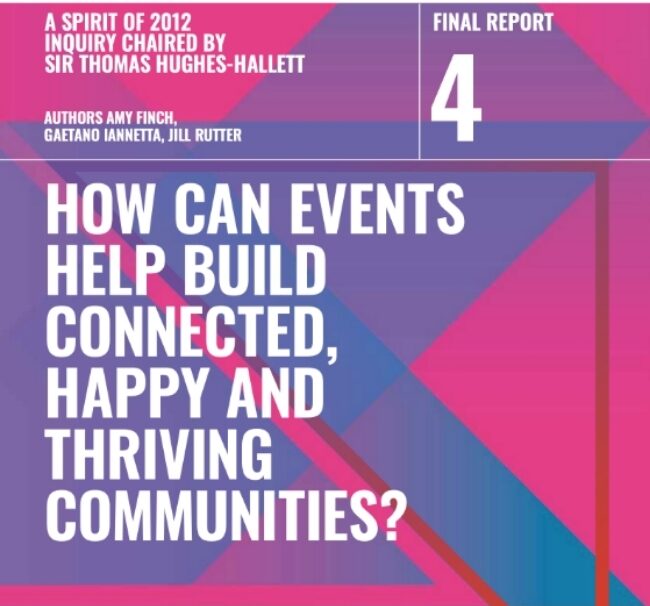
1Power of Events: Final Report
This report presents the results of Spirit of 2012’s major national inquiry into how events can help build connected, happy, and thriving communities. It argues that
- Long-term impact and a clear plan for “what next” must be the driver for the decision to bid or host a major event
- The long-term impact of events must be underpinned by demarcated funding, accountability and governance
- Greater attention must be paid to who benefits from events and who is left out
- More events should be designed and curated with a broad range of stakeholders to build common ground across divides
- Events that use volunteers should have a clear strategy to boost longer-term community volunteering.
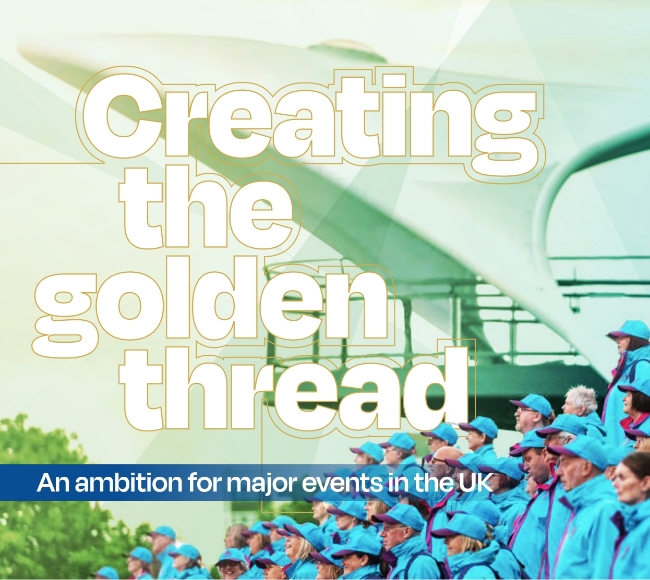
2Creating the Golden Thread: An Ambition for Major Events in the UK (Warwick Business School)
This report advocates for a national ambition for events and the development of a UK strategy for major events. It models the ecosystem of stakeholders involved in an event and their role in supporting its long-term impact. The report includes a series of recommendations for improving the way that the events ecosystem works, aimed at funders, policy makers and event organisers.
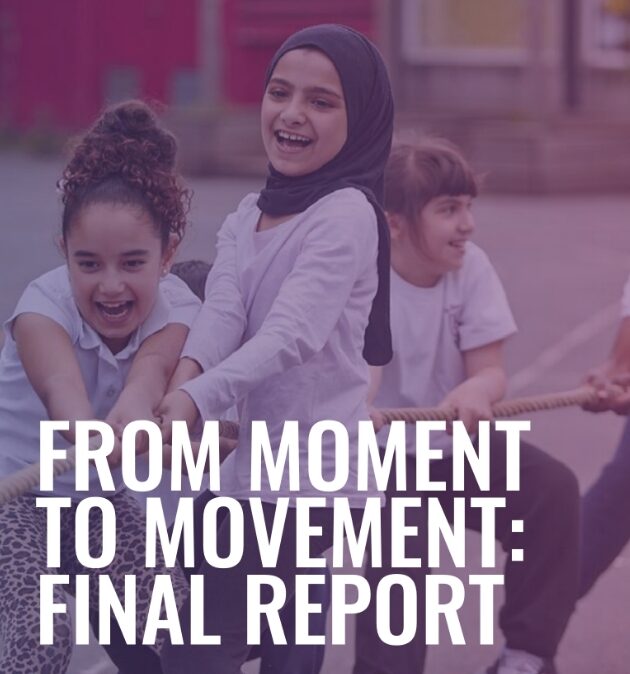
3Moment to Movement (InFocus)
This research brings together learning from three expert organisations in community events: Jo Cox Foundation, WOW Foundation and Springboard to understand how community events best inspire social action, developing a simple logical model based on their experiences. Read it to understand how ‘moments’ (community events) lead to ‘movements’ (longer-term social action that connects back to the ‘spirit’ of the original event) and how, from the outset, you can build activities which have the best chance of leading to that longer-term change.
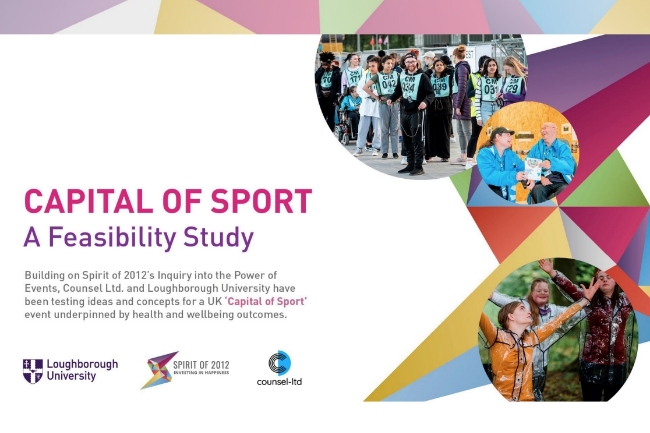
4Capital of Sport (Counsel and Loughborough University)
This report looks at how the UK City of Culture model could could be applied to sport and physical activity, exploring whether you can combine the catalytic power of an event with a place-based intervention to achieve health and wellbeing outcomes. It is a useful read for anyone wanting to think differently about sports events and their link to physical activity.



